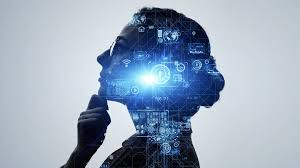What is Artificial Intelligence: Understanding the Basics, Benefits, and Risks
Artificial intelligence, or AI, is a rapidly growing field that has the potential to revolutionize the way we live and work. It refers to the development of computer systems capable of performing tasks that typically require human intelligence, such as pattern recognition, decision making, and learning from experience.
There are many important questions that people search for when it comes to artificial intelligence, and this article will attempt to address some of the most common questions.
What is artificial intelligence?
As mentioned earlier, artificial intelligence refers to the development of computer systems capable of performing tasks that would normally require human intelligence. This includes tasks such as pattern recognition, decision making, and learning from experience.
What are the different types of artificial intelligence?
There are several different types of artificial intelligence, including:
Narrow or weak AI: This type of AI is designed to perform a specific task, such as playing a game or translating text. It is unable to perform other tasks that require different types of intelligence.
General or strong AI: This type of AI is designed to perform a wide range of tasks, and is able to adapt to new situations and learn from experience.
Supervised learning: This type of AI is trained to perform a specific task by being fed a large amount of labeled data. It is able to learn from this data and make predictions about new data.
Unsupervised learning: This type of AI is not fed labeled data, but instead is able to learn from the data itself and identify patterns and relationships.
How is artificial intelligence used today?
Artificial intelligence is being used in a wide range of industries and applications today. Some examples include:
Healthcare: AI is used to analyze medical images, such as X-rays and MRIs, and identify patterns that may indicate a particular condition or disease. It is also used to analyze electronic health records and provide treatment recommendations.
Finance: AI is used to analyze financial data and make predictions about market trends, as well as to identify fraudulent activity.
Retail: AI is being used to personalize online shopping experiences and make recommendations to customers based on their previous purchases.
Manufacturing: AI is being used to improve production processes and identify potential problems before they occur.
What are the potential benefits of artificial intelligence?
There are many potential benefits of AI, including:
Improved efficiency: AI can process large amounts of data quickly and accurately, helping to streamline processes and reduce the amount of time and resources required to complete tasks.
Increased accuracy: AI can identify patterns and relationships that humans may find difficult to see, which can lead to more accurate predictions and decisions.
Improved customer service: AI can be used to provide personalized recommendations and support to customers, which can improve their overall experience.
What are the potential risks of artificial intelligence?
There are also some potential risks associated with AI, including:
Job displacement: As AI becomes more advanced, it may be able to perform tasks that were previously done by humans. This could lead to job loss and unemployment.
Bias: AI systems can be biased if they are trained on biased data, which can lead to unfair outcomes.
Lack of accountability: It can be difficult to determine who is responsible if something goes wrong with an AI system, which can make it difficult to hold anyone accountable for any negative consequences.
How can we ensure the responsible development and use of AI?
There are several ways we can ensure the responsible development and use of AI, including:
Ensuring diversity and inclusion in the development process: It is important to have a diverse team of developers working on AI projects in order to ensure that systems are designed in an ethical and unbiased manner.
Ensure transparency: AI systems should be transparent and explainable, so that users understand how they work and can make informed decisions about their use.
Ensure accountability: There should be clear guidelines for the responsible use of AI, and those who violate these guidelines should be held accountable.
Ensuring that AI is used ethically: AI must be used in a way that respects the rights and dignity of individuals, and does not discriminate against certain groups of people.
Ensuring that AI is used for the good of society: AI should be used to address social and environmental issues, and to benefit the public good.
Overall, AI has the potential to bring about significant positive changes in the world. However, it is important to ensure that it is developed and used responsibly in order to maximize its benefits.

